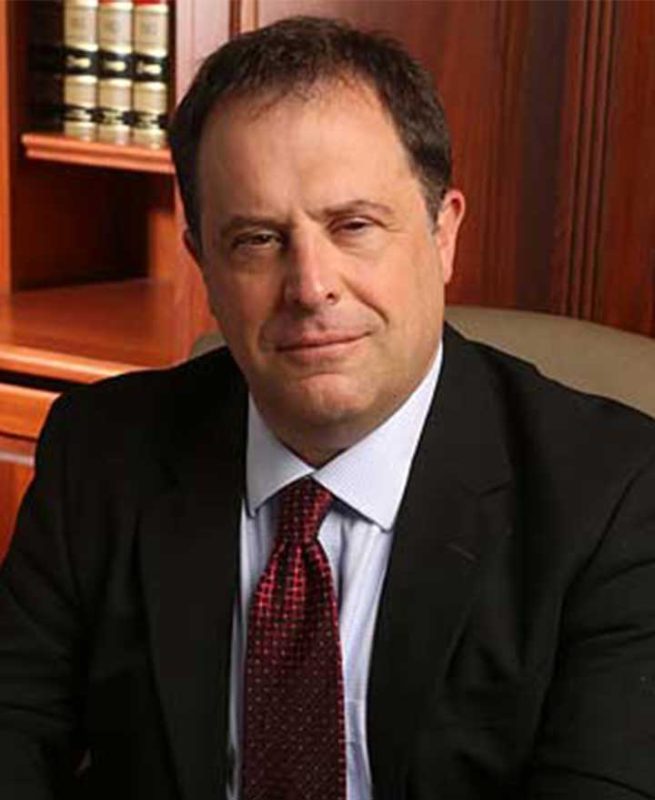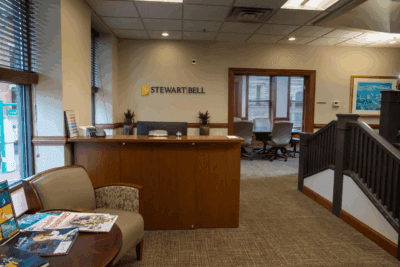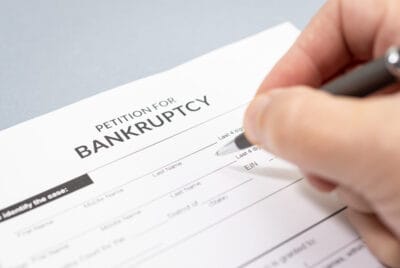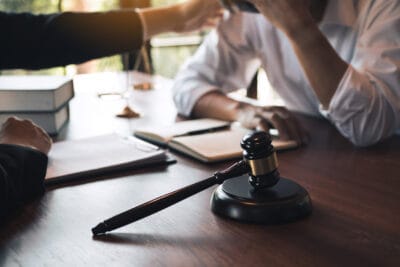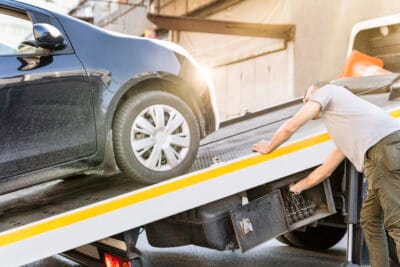
The Short Answer…
After a car accident, check for injuries and move to a safe location. Call 911 to report the crash and request medical help if needed. Exchange contact and insurance information with the other driver, take photos of the scene, and gather details from any witnesses. Be sure to seek medical attention (even if you feel fine) and notify your insurance company. Finally, consult an experienced car accident attorney to protect your rights and explore your legal options.
Key Takeaways
- Get to Safety: Move your vehicle out of traffic if it’s safe to do so, and turn on your hazard lights.
- Call 911: Report the crash and request medical assistance, even for minor injuries.
- Document Everything: Take pictures, gather witness info, and write down accident details.
- Don’t Admit Fault: Avoid saying anything that could be interpreted as admitting blame.
- Talk to an Attorney: A qualified car accident lawyer like those at Stewart Bell, PLLC can help protect your rights and deal with insurance companies.
Table of Contents
What to Do Immediately After a Car Accident
The first few minutes after a car crash are often the most stressful and the most important. What you do right away can impact your safety, the outcome of your insurance claim, and even your ability to recover compensation. By staying focused and following the right steps, you can protect both your health and your legal rights.
1. Check For Injuries
Your first priority is safety. Quickly check yourself, your passengers, and others involved in the crash for any signs of injury. If anyone appears hurt (even slightly), call 911 immediately. Some injuries like whiplash or internal trauma may not show symptoms right away. It’s better to be cautious and let medical professionals make the call.
Helpful Tip: Even if you’re feeling “shaken but okay,” adrenaline can mask pain. Don’t skip a medical evaluation.
2. Move to a Safe Location (If You Can)
If it’s safe to do so, and your vehicle is drivable, move it to the shoulder of the road or a nearby parking lot. This helps prevent further collisions or hazards. If the vehicle can’t be moved, stay inside with your seatbelt fastened and hazard lights on until help arrives.
Safety Tip: Avoid standing in traffic or behind disabled vehicles. Wait for police or tow services to direct you.
3. Contact the Police
Even for minor accidents, call 911. A police report provides a neutral, documented account of the crash that can be valuable for insurance claims and legal proceedings. Cooperate fully with officers, but do not guess or speculate about what happened.
Important: In West Virginia, you’re required to report accidents that involve injury, death, or property damage over $1,000.
4. Remain Calm
It’s completely normal to feel shaken, scared, or even angry after a car accident, but staying calm is essential. Take a few deep breaths, collect your thoughts, and focus on your safety and the next steps. A clear mind will help you handle the situation responsibly and avoid making mistakes that could hurt your claim.
Pro Tip: Avoid yelling, arguing, or placing blame at the scene. Anything you say could be misinterpreted or later used against you.
What to Do After Being In a Car Accident
Once you’ve ensured everyone is safe and emergency services have been contacted, it’s time to take important follow-up steps that protect your health, preserve evidence, and build the foundation for any insurance claim or legal action. The hours and days after getting into a car accident are just as important as what you do at the scene, so be proactive, stay organized, and know your rights.
5. Exchange Information
Collect information from all involved drivers, including:
- Full names
- Contact numbers and addresses
- Driver’s license numbers
- Vehicle license plate numbers
- Insurance company names and policy numbers
If there are witnesses, ask for their names and phone numbers, too. This could be important later if there’s a dispute about what happened.
6. Document the Accident Scene
Take clear photos and videos of:
- Damage to all vehicles involved
- Roadway conditions (wet pavement, skid marks, traffic signs)
- Surrounding area
- Injuries (if visible)
- The other driver’s license plate and vehicle
Also, write down the time, date, weather, and a brief description of the crash while the details are still fresh.
7. Get a Police Report
Once law enforcement arrives at the scene, they will create an official crash report that includes driver statements, observations, and sometimes a preliminary assessment of fault. A police report is a powerful piece of evidence when dealing with insurance companies or pursuing an injury claim.
Request a Copy: Ask the responding officer how to obtain a copy of the report. In most cases, it’s available online within a few days from the responding agency.
8. Seek Medical Attention
Even if you think you’re fine, get checked by a doctor as soon as possible. Injuries like concussions, spinal injuries, or soft-tissue damage can show up hours or days later. Prompt care also strengthens your injury claim with documented proof.
Important: Be sure to follow your doctor’s instructions and attend all follow-up appointments.
9. Notify Your Insurance Company
Call your insurer to report the accident and start a claim. Be honest, but stick to the facts. Avoid speculating or accepting blame. Provide:
- Date, time, and location of the crash
- Names of involved drivers and witnesses
- Police report number (once available)
- Photos and documentation
If the other driver’s insurer contacts you, it’s best to refer them to your lawyer.
10. Contact an Attorney
Before signing any forms or accepting a settlement, speak with an experienced car accident attorney. At Stewart Bell, PLLC, we know how to deal with insurance companies and make sure your rights are protected. We can help you:
- Investigate the accident and gather evidence
- Understand your legal rights and options
- Maximize your potential compensation for medical bills, lost income, and pain and suffering
What Not to Do After a Car Accident
Knowing what not to do after getting into a car accident can be just as important as knowing the right steps to take. Mistakes made at the scene or in the days following can hurt your case or delay your recovery.
- Don’t leave the scene, even if you believe it was a minor collision. Leaving the scene of an accident, especially one involving injuries or damage, can result in serious legal consequences.
- Don’t apologize, as even a simple “I’m sorry” can be taken as an admission of guilt and used against you in insurance or legal proceedings.
- Don’t skip a medical evaluation, thinking you’ll be fine. Some injuries, like concussions or internal trauma, can take time to show up and may worsen if untreated.
- Don’t talk to the other driver’s insurance company alone. Their goal is to pay as little as possible. Politely decline to answer questions and refer them to your attorney.
- Don’t accept a quick settlement without legal advice. What may seem like a generous offer could fall far short of covering your future medical care and lost earnings.
What to Do After a Car Accident That’s Not Your Fault
Being hit by a negligent or reckless driver can be frustrating. Even if you didn’t cause the crash, you still have important responsibilities to protect yourself and strengthen your claim.
- Notify your insurer. Contact your insurance company as soon as possible, even if the other driver was clearly at fault. Your policy may require it, and they can assist with the claims process and vehicle repairs.
- Avoid admitting fault or speculating. Stay calm and stick to the facts when speaking with anyone at the scene or after. Do not say “I’m sorry” or guess about what happened—let the official investigation determine fault.
- Consult a car accident attorney. Even when you’re not at fault, the other party’s insurance may try to shift blame or offer a low settlement. A lawyer can protect you from these tactics and fight for the full compensation you may be owed for medical bills, lost income, and pain and suffering.
What to Do After a Minor Car Accident
Even if the crash seems small like a fender bender in a parking lot or a low-speed rear-end collision, you should still take it seriously. Minor car accidents can lead to hidden injuries and expensive repairs, and how you respond could affect your insurance or a future claim.
- Report the accident. In West Virginia, you must report any accident that causes injury or significant property damage. A police report can serve as crucial documentation, even if the damage looks minimal.
- Seek medical attention. You might feel fine, but symptoms like dizziness, soreness, or headaches may appear hours or days later. A quick medical check-up ensures your safety and links your injuries to the accident, which is important for any potential claims.
- Document everything. Take photos, collect witness info, and write down what happened. Insurance companies may question the severity of a minor crash, so strong evidence helps prove your case and avoid unnecessary delays.
What to Do After a Car Accident Injury
If you were injured in a crash, taking the right steps can make a major difference in your physical recovery and your financial future. Even mild symptoms should be addressed promptly and documented thoroughly.
- Seek immediate medical attention. Go to the emergency room, urgent care, or your doctor as soon as possible. Delaying treatment can worsen your condition and weaken your injury claim. Keep records of every visit, prescription, and test result.
- Track your recovery. Keep a written or digital journal of your symptoms, pain levels, and how your injuries affect daily life. Save all receipts for out-of-pocket expenses, including medications, transportation, and medical equipment.
- Speak with a lawyer. Serious injuries may entitle you to compensation for hospital bills, rehabilitation costs, missed work, and long-term suffering. A skilled attorney can assess your case and handle the legal process so you can focus on healing.
Why You Need a Car Accident Lawyer After a Crash
After a car accident, you may be dealing with injuries, vehicle repairs, missed work, confusing insurance paperwork, and pressure to settle quickly. At Stewart Bell, PLLC, we understand what you’re going through and we’re here to stand by your side every step of the way.
With decades of experience serving car accident victims in Charleston, Huntington, Dunbar, and throughout West Virginia, we know what to do after a car accident to protect your rights and how to fight for the justice you deserve and compensation you may be entitled to. Our legal team takes the stress off your shoulders and works tirelessly to build the strongest case possible.
Here’s what we do for you:
- Conduct a full investigation. We gather police reports, interview witnesses, review medical records, and collect the evidence needed to prove fault and maximize your claim.
- Handle all communication with the insurance companies. Insurers may try to delay, deny, or undervalue your claim. We protect you from these tactics and fight for a fair outcome.
- Manage the legal process so you don’t have to. From paperwork to deadlines, we take care of every detail so you can focus on your recovery—not legal red tape.
- Pursue every dollar you may be owed. Whether it’s medical expenses, lost wages, pain and suffering, or long-term care needs, we fight aggressively for full and fair compensation.
- Treat you with compassion and respect. You’re not just a case number. We take the time to listen, answer your questions, and keep you informed at every stage.
Get Trusted Legal Help With No Upfront Costs
If you or a loved one has been injured in a car accident, don’t face the insurance companies alone. Our dedicated car accident lawyers offer free consultations, and you pay nothing unless we win your case. Contact us today to start your path toward justice and financial recovery.

